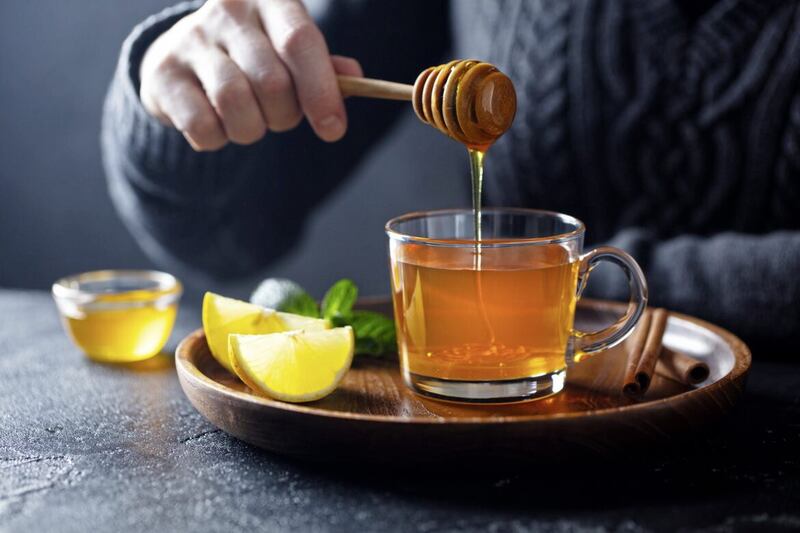FROM Covid to flu and the nasty cold doing the rounds, it seems most people are currently battling a bug.
So much so that pharmacies have been selling out of cold and flu remedies such as Lemsip.
Multiple factors are behind this tide of illness, says Neil Mabbott, a professor of immunopathology at Edinburgh University.
"In recent winters there was limited mixing indoors, as well as widespread use of face coverings and social distancing," he says.
"We're now mixing indoors and using public transport much more, and in larger groups, providing greater opportunities for these common infectious diseases to spread."
The situation is being exacerbated by the fact that this winter there appears to be a particularly virulent cold in circulation, says Danny Altmann, a professor of immunology at Imperial College London.
"The current one seems highly infectious and brings a really lasting hacking cough," he says.
John Oxford, an emeritus professor of virology at Queen Mary, University of London, concurs.
"It has been an extraordinary winter so far," he says.
"There seems to be a lot of infection going around. There are also dozens of varieties of cold virus and we can get reinfected with each one."
And then there is the so-called "immunity gap", adds Professor Paul Hunter, an expert in infectious diseases at Norwich Medical School.
This is the result of lockdowns reducing our usual exposure to seasonal viruses, so we have little natural immunity to them now that they're back in circulation. And the longer it is since previous exposure, the greater our chance of catching an infection.
"So if someone was exposed to flu three months after their original bout, then they'll probably not develop the illness again," says Prof Hunter.
"If exposure happens a year later, it might lead to a standard bout of flu - unpleasant but not dangerous as they won't have high levels of antibodies to it, but they'll have at least some.
"But there's now a three-year gap between previous and current exposure to flu, and this can lead to a severe form of it." The same may apply to other respiratory infections.
How long we succumb to a virus - and how long it takes to feel normal - depends on factors such as the infection, your vaccination status, previous infections as well as your age. But is there anything we can do to speed up recovery?
Most medication fights symptoms rather than the cause, so they won't speed up recovery, says Prof Hunter. Prescription anti-viral drugs can do this, but are usually only offered for severe flu in vulnerable people.
"For most people, by the time you know it's flu, it's too late to take them and they do little to help," says Prof Hunter. (Studies show antiviral drugs work best when started within two days of getting sick.)

A more accessible form of treatment is sleep. A 2019 study in the Journal of Experimental Medicine found that a good night's sleep can increase the function of T-cells - white blood cells that kill invading bacteria and viruses.
"Our body's circadian rhythms [24-hour cycle] and nocturnal sleep play important roles in regulating our immune system," explains Prof Mabbott.
"That's why disturbed sleep can reduce the effectiveness of our immune responses, either to infections or vaccines."
Dr Steven Kinnear, a GP based in Bangor, Co Down, says: "Since sleep is vital to gee up recovery, I use the children's remedy Calpol Vapour Plug & Nightlight, which can stop a blocked nose disturbing my rest." (The vapours help decongest, he says.)
Eating well helps, too. "Think Mediterranean diet, rich in colourful plants, each with their own host of anti-inflammatory and antioxidant nutrients," says Dr Jenna Macciochi, a senior lecturer in immunology at Sussex University and author of Your Blueprint For Strong Immunity.
"Focus on protein, too, as this provides the building blocks for the different components of our immune system. In addition, your tissues may have incurred damage from the infection - protein is important to rebuild and repair."

She suggests omega-3 supplements, as these fats are the raw materials for our immune system anti-inflammatory mechanisms (to turn off inflammation and help repair and recovery).
The reason we're advised to drink plenty of fluid is partly to help thin mucus, so it drains away more easily, relieving congestion, says Dr Kinnear.
"But limit alcohol," adds Dr Roger Henderson, a GP in Shropshire. "Too much can lead to vitamin deficiencies, which can affect your immune system."
And pace yourself when it comes to exercise.
"Pushing yourself before you're ready can set you back, and make you even more exhausted," says Dr Gavin Francis, a GP and author of Recovery: The Lost Art Of Convalescence.
"It's important knowing that it's OK to rest a bit - and that it might take a good few weeks to improve."
Convalescing is a vital part of recovery, agrees Dr Macciochi. "In today's fast-paced world, we feel we have no time to be ill - we're all looking for a quick fix and then to get back to our normal daily life quickly," she says.
"Recovery takes time. Health doesn't begin when acute symptoms end."
© Solo dmg media






